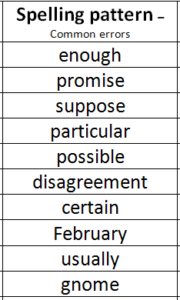14 July 2017
This week, as it’s the final week of the year, children have been given one piece of homework to do. This is due on Thursday 20 July.
The homework is Creative: I can reflect on my time in Year 5 and look ahead to next year.
We have discussed lots of ways that children could respond to this:
- you could write a letter to Mr Catherall and Miss Rushbrooke
- you could make a poster about the different topics we’ve covered this year
- you could make a Year 5 themed board game
- you could create a timeline of the year
- you could do a video diary of the year
- you could make a Year 5 themed comic
- you could write a newspaper report about Year 5
- you could create a collage of your favourite pieces of homework
- you could create poster of highlights
- you could create a vlog about a typical day in Year 5
- you could make a movie trailer of the year we’ve had
- you could use Scratch to reflect on the year
Obviously, there are many more ways, too.
07 July 2017
Top Tips Poster
This week, children should create a poster explaining the best ways they have learnt their spellings whilst in Year 5. These posters may then be displayed so that the next class of Year 5’s can ‘magpie’ some top tips.
07 July 2017
This week, the words have either an il, el or al ending.
The el ending sounds the same as the le ending (which we’ve previously practised) but is less common.
| pencil |
| evil |
| pupil |
| camel |
| tunnel |
| towel |
| metal |
| pedal |
| hospital |
07 July 2017
This week’s spellings are common errors that the children are making in their writing and errors they made in a recent spelling test. Learn them in preparation for a test on Friday 14 July.

07 July 2017
Next Friday, 14 June, we will have our final spelling test of the year. Words will be chosen at random from the statutory word list for Year 4.
Each child has been given another copy of this word list to use for practice. All the words have been covered throughout the year. Test your child by picking words at random, asking them to spell them and highlight any they are struggling with for more practice.
The children will be tested on 25 of these words.
Good learning!
30 June 2017
There are only five spellings this week. They are all homophones or near-homophones. The children will have to use the words correctly in context to get the spelling correct.
| There are three cows. |
| Their cat is naughty. |
| They’re playing tennis. |
| Our class work hard. |
| Are we nearly there? |
30 June 2017
| double up for a short vowel sound | ||||
| We’re revising one of our three main spelling rules with week: doubling up a consonant to make a short vowel sound. These words are all from the Y3/4 word bank. | ||||
| appear | difficult | occasion | possession | pressure |
| different | grammar | opposite | possible | suppose |
30 June 2017
Just like last week, this week, children have been given a copy of the statutory word list for Years 5 and 6. They should revise spelling these words, and any other words they have learnt this year, in preparation for their end of year spelling test.
They should evidence their revision using one whole page of their homework book.

23 June 2017
We’re learning about …ness and …ment suffixes in phonics next week. Usually, you just add the suffix on to the root word. The exceptions are when the word ends in a y and is more than one syllable long eg happiness or merriment. Argument is another exception as you drop the e from argue.
| happy happiness |
| sad sadness |
| kind kindness |
| quiet quietness |
| dark darkness |
| punish punishment |
| enjoy enjoyment |
| move movement |
| amaze amazement |
| measure measurement |
23 June 2017
Revision
This week, children have been given a copy of the statutory word list for Years 5 and 6. They should revise spelling these words, and any other words they have learnt this year, in preparation for their end of year spelling test.
They should evidence their revision using one whole page of their homework book.
